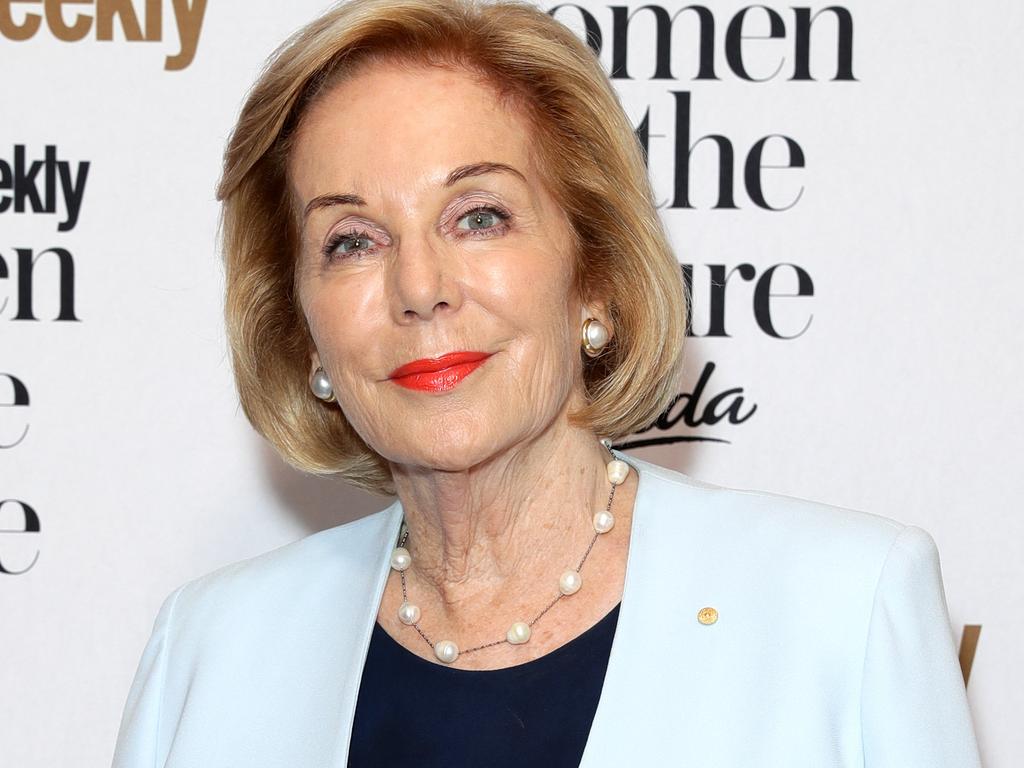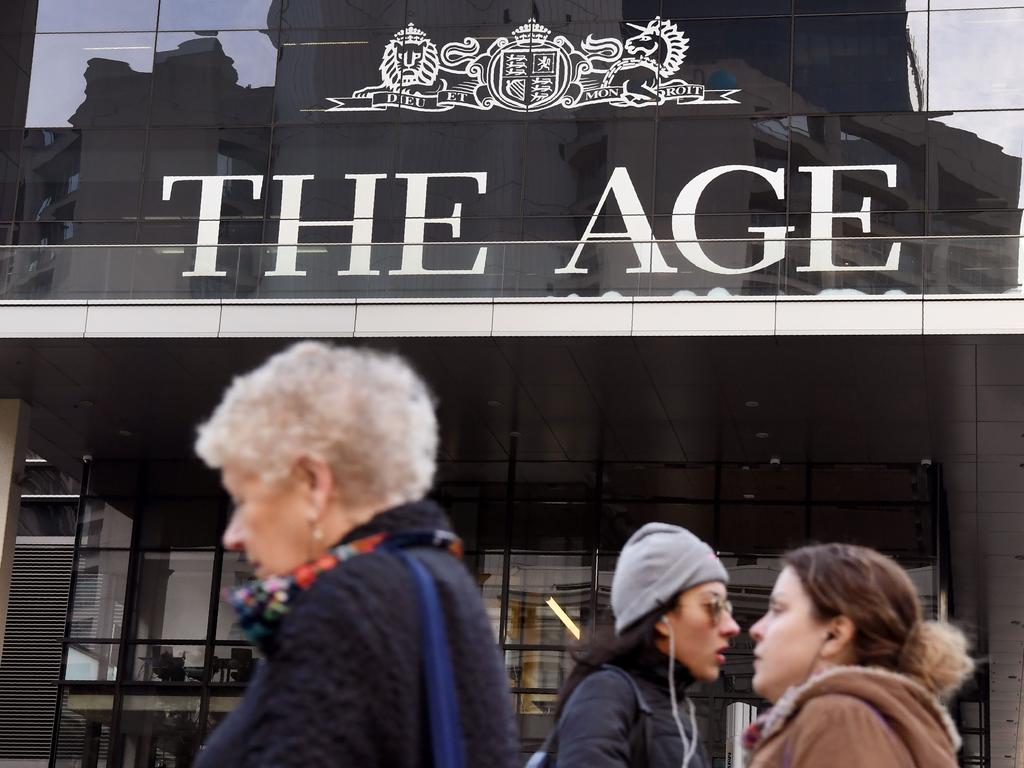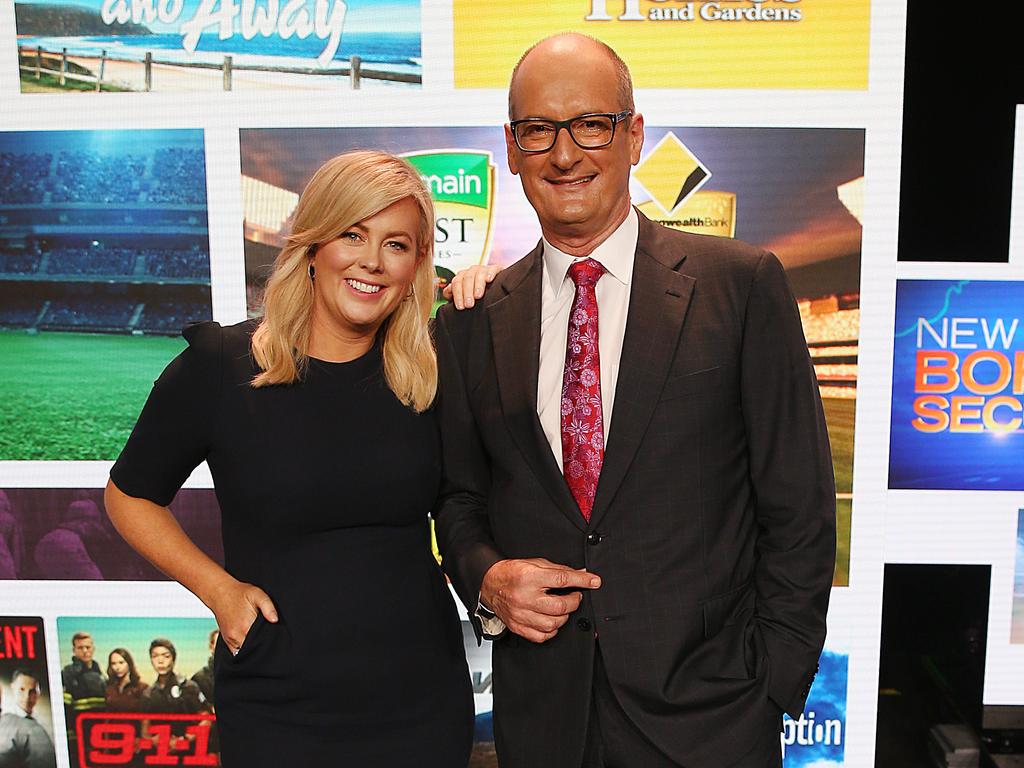Internal ‘partiality’ review set to leave Ita Buttrose and the ABC cornered

ABC chairwoman Ita Buttrose’s father, an assistant general manager under Talbot Duckmanton at the broadcaster, would have recognised both of the above facts when Coalition governments were in power.
This week and last, Buttrose has been fighting considerable battles with the Morrison government, which could have a considerable impact on whether she and managing director David Anderson are seen as having a successful reign.
The most acute battle will be her defence of the now notorious Four Corners program that pilloried two government ministers, Alan Tudge and Christian Porter, through canvassing some aspects of their private relationships with women.

The program did not find they had transgressed the Ministerial Code of Conduct, nor did it suggest any alleged flirtation or affair affected the undertaking of their ministerial duties or any ministerial decision. Substantively, therefore, while a vicariously titillating program and I’m sure a ratings success, it was a flop.
Buttrose sent her letter of reply on Monday to Communications Minister Paul Fletcher’s 15 questions, contained in his letter of November 30. The legislative references to ABC board responsibilities and the precision of the 15 questions smack of Attorney-General Porter’s hand and direct personal interest in the matter.
But I do not want to speculate on Buttrose’s answers to Fletcher. To me, perhaps the most important item of public interest in it was not a question but a fact relayed by David Anderson during Senate estimates hearings before the Four Corners episode went to air.
He said: “The chair has seen the program and supports the decision to publish it.”
Now this is a strange application of board and executive functions and powers at the ABC. The managing director is editor in chief. It is his job to determine what is published day to day, not the ABC board and/or its chair.
Why would such an experienced media professional as Buttrose put herself in this prior “approval” position? Why would Anderson let, or seek for, her to do this?
Clearly, by Buttrose watching the program before it went to air, there must have been the possibility she would have suggested it be pulled or edited.
Had she done so, of course, all hell would have been let loose internally and leaks would abound within minutes.

On the other hand, she saw the program and, according to Anderson, sanctioned it.
Exactly where does that place the other five ABC board members (other than Buttrose and Anderson)? Are they not effectively muzzled by their chair’s unilateral prior viewing and sanctioning?
And what does this say about Anderson? Does his action, which presumably involved him suggesting the chair see the program, or not advising her against watching it, indicate he is not really editor in chief when the going gets tough?
In my view, the chair watching the program before it went to air, and the managing director either encouraging or facilitating that, puts his judgment in question.
The matter of Fletcher’s published questions and Buttrose’s unpublished answers will eventually dissipate. But the obvious problem about editorial responsibilities and roles at the top of the ABC remain while the current duumvirate exists.
The other battle Buttrose has fought, already lost, but has some way yet to run, is in the “forced” publication of an internal board review of the ABC’s 2019 federal election coverage.
The board commissioned this from Kerry Blackburn soon after the May election and received it in October last year.

The ABC fought against it being tabled in the Senate last week and requested it remain confidential. The broadcaster failed on both counts and so the ABC itself published the report and Buttrose’s submission seeking confidentiality.
Frankly, having read the review, I sense that, but for the more acute Four Corners imbroglio, much more adverse comment would have occurred. For example, Blackburn watched five episodes of The Drum for her review and found three of them had real questions to answer on the grounds of “partiality”.
But my interest also went to the ABC board choice of reviewer. Experienced public servants, including those within the ABC, know that you can usually control the outcome of any official inquiry by writing the terms of reference for it and appointing the people who will conduct it.
Well, it might seem odd, but in neither Buttrose’s letter seeking tabling relief nor in Blackburn’s 67-page report are the terms of reference published.
Indeed, there is a discrepancy between what the review’s author says she was asked to examine and what Buttrose’s letter to the Senate says were the questions commissioned to be answered.
Blackburn has a significant CV in the media but does not appear to have been operationally involved since she moved from the UK to Australia in 2007. She now appears to be producing CDs for “babies and preschoolers” and is “an author of the bedtime story tracks”.
She says she has now done seven reports for the ABC between 2009 and 2019.
In introducing Blackburn in the report the ABC includes that she was: “Executive producer of a long-running daily Channel 5 show, perhaps best described as a hybrid of The Drum and The Project.”
But perhaps the most surprising aspect of the choice of reviewer of the ABC’s 2019 election coverage report is that Blackburn’s Twitter account says she is principal policy adviser in Victorian Premier Daniel Andrews’ Department of Premier and Cabinet.
No wonder the ABC wanted to keep it private.
Ian McGarrity was formerly the deputy to the head of ABC TV and the ABC’s head of development. He was the first head of TV at SBS.







As John Howard’s chief of staff, Grahame Morris, once said: “Funding the ABC is just giving money to our enemies to speak to our friends.” And as everyone knows, “biting the hand that feeds you” is always worth bearing in mind before masticating.